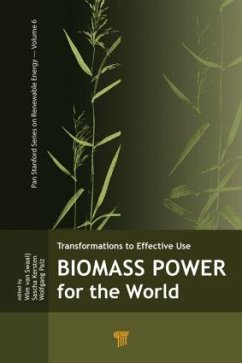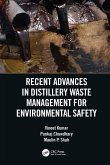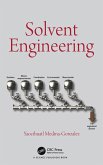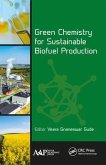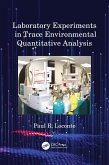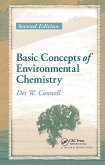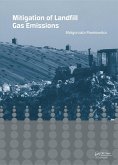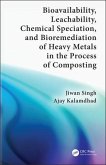Biomass Power for the World
Herausgeber: Swaaij, Wim P M van; Palz, Wolfgang; Kersten, Sascha R a
Biomass Power for the World
Herausgeber: Swaaij, Wim P M van; Palz, Wolfgang; Kersten, Sascha R a
- Gebundenes Buch
- Merkliste
- Auf die Merkliste
- Bewerten Bewerten
- Teilen
- Produkt teilen
- Produkterinnerung
- Produkterinnerung
This book explores the development of biomass, the largest renewable energy source at present, to efficient applications in modern and developing society. Accessible to non-experts and detailed enough for experts, the book reveals the true challenges that lie ahead in this extremely broad area. It focuses on specific technologies, both biological and thermos-chemical, from the simple to the extremely complex, and provides clear, concise explanations that include future prospects. Written by experts, the book highlights the role of bio-energy in the future of renewable energy.
Andere Kunden interessierten sich auch für
![Recent Advances in Distillery Waste Management for Environmental Safety Recent Advances in Distillery Waste Management for Environmental Safety]() Vineet KumarRecent Advances in Distillery Waste Management for Environmental Safety140,99 €
Vineet KumarRecent Advances in Distillery Waste Management for Environmental Safety140,99 €![Solvent Engineering Solvent Engineering]() Yaocihuatl Medina-GonzalezSolvent Engineering139,99 €
Yaocihuatl Medina-GonzalezSolvent Engineering139,99 €![Green Chemistry for Sustainable Biofuel Production Green Chemistry for Sustainable Biofuel Production]() Green Chemistry for Sustainable Biofuel Production188,99 €
Green Chemistry for Sustainable Biofuel Production188,99 €![Laboratory Experiments in Trace Environmental Quantitative Analysis Laboratory Experiments in Trace Environmental Quantitative Analysis]() Paul R LocontoLaboratory Experiments in Trace Environmental Quantitative Analysis161,99 €
Paul R LocontoLaboratory Experiments in Trace Environmental Quantitative Analysis161,99 €![Basic Concepts of Environmental Chemistry Basic Concepts of Environmental Chemistry]() Des W ConnellBasic Concepts of Environmental Chemistry138,99 €
Des W ConnellBasic Concepts of Environmental Chemistry138,99 €![Mitigation of Landfill Gas Emissions Mitigation of Landfill Gas Emissions]() Malgorzata PawlowskaMitigation of Landfill Gas Emissions126,99 €
Malgorzata PawlowskaMitigation of Landfill Gas Emissions126,99 €![Bioavailability, Leachability, Chemical Speciation, and Bioremediation of Heavy Metals in the Process of Composting Bioavailability, Leachability, Chemical Speciation, and Bioremediation of Heavy Metals in the Process of Composting]() Jiwan SinghBioavailability, Leachability, Chemical Speciation, and Bioremediation of Heavy Metals in the Process of Composting139,99 €
Jiwan SinghBioavailability, Leachability, Chemical Speciation, and Bioremediation of Heavy Metals in the Process of Composting139,99 €-
-
-
This book explores the development of biomass, the largest renewable energy source at present, to efficient applications in modern and developing society. Accessible to non-experts and detailed enough for experts, the book reveals the true challenges that lie ahead in this extremely broad area. It focuses on specific technologies, both biological and thermos-chemical, from the simple to the extremely complex, and provides clear, concise explanations that include future prospects. Written by experts, the book highlights the role of bio-energy in the future of renewable energy.
Hinweis: Dieser Artikel kann nur an eine deutsche Lieferadresse ausgeliefert werden.
Hinweis: Dieser Artikel kann nur an eine deutsche Lieferadresse ausgeliefert werden.
Produktdetails
- Produktdetails
- Verlag: Taylor & Francis Ltd (Sales)
- Seitenzahl: 760
- Erscheinungstermin: 6. April 2015
- Englisch
- Abmessung: 231mm x 155mm x 46mm
- Gewicht: 1202g
- ISBN-13: 9789814613880
- ISBN-10: 9814613886
- Artikelnr.: 42833828
- Herstellerkennzeichnung
- Libri GmbH
- Europaallee 1
- 36244 Bad Hersfeld
- gpsr@libri.de
- Verlag: Taylor & Francis Ltd (Sales)
- Seitenzahl: 760
- Erscheinungstermin: 6. April 2015
- Englisch
- Abmessung: 231mm x 155mm x 46mm
- Gewicht: 1202g
- ISBN-13: 9789814613880
- ISBN-10: 9814613886
- Artikelnr.: 42833828
- Herstellerkennzeichnung
- Libri GmbH
- Europaallee 1
- 36244 Bad Hersfeld
- gpsr@libri.de
Wim van Swaaij studied chemical engineering sciences and obtained his PhD at the Technical University in Eindhoven, the Netherlands. He has over 40 years of experience in industrial and academic R&D on processes including biomass conversion. He is a consultant for several multinational firms such as Shell, DSM, Solvay Duphar, and BASF. He is a member of the Royal Netherlands Academy of Sciences. His awards and honors include the "Grand Prix du Génie des Procédés" of the French Academy of Sciences; doctor honoris causa by the Université de Nancy, France; the Royal Dutch Shell Prize; and the Golden Tesla medal for energy research. He is Knight in the Order of the Netherlands Lion. Sascha Kersten obtained his MSc in chemical engineering from the University of Amsterdam, the Netherlands, and a PhD on biomass gasification in circulating fluidized beds from the University of Twente under the guidance of Prof. Van Swaaij. He began his career at the Energy Research Centre of the Netherlands, where he worked on modeling of dynamic systems and later on biomass conversions. Since 2003 he has been working at the University of Twente and is currently the chair of the Sustainable Process Technology Group of the university. He is working on energy-efficient separations, CO2 capture and utilization, water purification, recovery/recycling of scarce elements, and thermochemical conversions of biomass into fuels, chemicals, and materials. Wolfgang Palz holds a PhD in physics from the University of Karlsruhe, Germany. He is bearer of an Order of Merit of Germany (Bundesverdienstkreuz), has been recognized as a wind energy pioneer in Britain, and has received several European prizes for biomass, wind energy, and solar photovoltaics, including the Swiss Solar Prize, together with the pioneers B. Piccard and A. Borschberg, the pilots of the airplane Solar Impulse, and the ISES Advancing Solar Energy Policy Award. He is author of the book Solar Electricity, which was published by UNESCO in seven languages, and editor of Pan Stanford Publishing's book series Power for the World.
Preface
1. Overview of Energy from Biomass for Nonexperts
2. Bioenergy: Global Potentials and Markets
3. The Future Role of Bioenergy in the Global Energy System
4. EU Biomass R&D: The Beginnings (Laying the Ground for Biomass Becoming Mainstream in Sustainable Energy Supply in Europe)
5. Large European Bioenergy Network (LEBEN): A Strategy for Commercial Exploitation of Biomass at the Regional Level
6. Energy from Biomass: Cooking without Fossil Fuels (a Journey into the World of Cooking in Developing Countries)
7. Biomass Cofiring
8. Biomass in Combined Heat and Power Production
9. Solvent-Based Biorefinery of Lignocellulosic Biomass
10. Synfuels via Biomass Gasification
11. Energy from Biomass via Gasification in Güssing
12. Biomass Gasification Systems for Small-Scale Power Generation: Design Rules and Considerations for Systems Including the Down-Draft Gasifier
13. Torrefaction: Upgrading Biomass into High-Quality Solid Bioenergy Carriers
14. Current Issues in Charcoal Production and Use
15. Pyrolysis of Biomass
16. Coprocessing of (Upgraded) Pyrolysis Liquids in Conventional Oil Refineries
17. Options for Adaptation of the Biogas Sector to Serve Evolving Electricity Grids
18. The Ethanol Program in Brazil
19. Biomass Conversion to Advanced Biofuels: A Short Review on Second Generation Processes to Produce Ethanol
20. Biomass to Liquid Fuels via HTU®
21. Catalytic Hydrothermal Gasification
22. Biomass to Fuels or Rather to Chemicals?
Index
1. Overview of Energy from Biomass for Nonexperts
2. Bioenergy: Global Potentials and Markets
3. The Future Role of Bioenergy in the Global Energy System
4. EU Biomass R&D: The Beginnings (Laying the Ground for Biomass Becoming Mainstream in Sustainable Energy Supply in Europe)
5. Large European Bioenergy Network (LEBEN): A Strategy for Commercial Exploitation of Biomass at the Regional Level
6. Energy from Biomass: Cooking without Fossil Fuels (a Journey into the World of Cooking in Developing Countries)
7. Biomass Cofiring
8. Biomass in Combined Heat and Power Production
9. Solvent-Based Biorefinery of Lignocellulosic Biomass
10. Synfuels via Biomass Gasification
11. Energy from Biomass via Gasification in Güssing
12. Biomass Gasification Systems for Small-Scale Power Generation: Design Rules and Considerations for Systems Including the Down-Draft Gasifier
13. Torrefaction: Upgrading Biomass into High-Quality Solid Bioenergy Carriers
14. Current Issues in Charcoal Production and Use
15. Pyrolysis of Biomass
16. Coprocessing of (Upgraded) Pyrolysis Liquids in Conventional Oil Refineries
17. Options for Adaptation of the Biogas Sector to Serve Evolving Electricity Grids
18. The Ethanol Program in Brazil
19. Biomass Conversion to Advanced Biofuels: A Short Review on Second Generation Processes to Produce Ethanol
20. Biomass to Liquid Fuels via HTU®
21. Catalytic Hydrothermal Gasification
22. Biomass to Fuels or Rather to Chemicals?
Index
Preface
1. Overview of Energy from Biomass for Nonexperts
2. Bioenergy: Global Potentials and Markets
3. The Future Role of Bioenergy in the Global Energy System
4. EU Biomass R&D: The Beginnings (Laying the Ground for Biomass Becoming Mainstream in Sustainable Energy Supply in Europe)
5. Large European Bioenergy Network (LEBEN): A Strategy for Commercial Exploitation of Biomass at the Regional Level
6. Energy from Biomass: Cooking without Fossil Fuels (a Journey into the World of Cooking in Developing Countries)
7. Biomass Cofiring
8. Biomass in Combined Heat and Power Production
9. Solvent-Based Biorefinery of Lignocellulosic Biomass
10. Synfuels via Biomass Gasification
11. Energy from Biomass via Gasification in Güssing
12. Biomass Gasification Systems for Small-Scale Power Generation: Design Rules and Considerations for Systems Including the Down-Draft Gasifier
13. Torrefaction: Upgrading Biomass into High-Quality Solid Bioenergy Carriers
14. Current Issues in Charcoal Production and Use
15. Pyrolysis of Biomass
16. Coprocessing of (Upgraded) Pyrolysis Liquids in Conventional Oil Refineries
17. Options for Adaptation of the Biogas Sector to Serve Evolving Electricity Grids
18. The Ethanol Program in Brazil
19. Biomass Conversion to Advanced Biofuels: A Short Review on Second Generation Processes to Produce Ethanol
20. Biomass to Liquid Fuels via HTU®
21. Catalytic Hydrothermal Gasification
22. Biomass to Fuels or Rather to Chemicals?
Index
1. Overview of Energy from Biomass for Nonexperts
2. Bioenergy: Global Potentials and Markets
3. The Future Role of Bioenergy in the Global Energy System
4. EU Biomass R&D: The Beginnings (Laying the Ground for Biomass Becoming Mainstream in Sustainable Energy Supply in Europe)
5. Large European Bioenergy Network (LEBEN): A Strategy for Commercial Exploitation of Biomass at the Regional Level
6. Energy from Biomass: Cooking without Fossil Fuels (a Journey into the World of Cooking in Developing Countries)
7. Biomass Cofiring
8. Biomass in Combined Heat and Power Production
9. Solvent-Based Biorefinery of Lignocellulosic Biomass
10. Synfuels via Biomass Gasification
11. Energy from Biomass via Gasification in Güssing
12. Biomass Gasification Systems for Small-Scale Power Generation: Design Rules and Considerations for Systems Including the Down-Draft Gasifier
13. Torrefaction: Upgrading Biomass into High-Quality Solid Bioenergy Carriers
14. Current Issues in Charcoal Production and Use
15. Pyrolysis of Biomass
16. Coprocessing of (Upgraded) Pyrolysis Liquids in Conventional Oil Refineries
17. Options for Adaptation of the Biogas Sector to Serve Evolving Electricity Grids
18. The Ethanol Program in Brazil
19. Biomass Conversion to Advanced Biofuels: A Short Review on Second Generation Processes to Produce Ethanol
20. Biomass to Liquid Fuels via HTU®
21. Catalytic Hydrothermal Gasification
22. Biomass to Fuels or Rather to Chemicals?
Index

